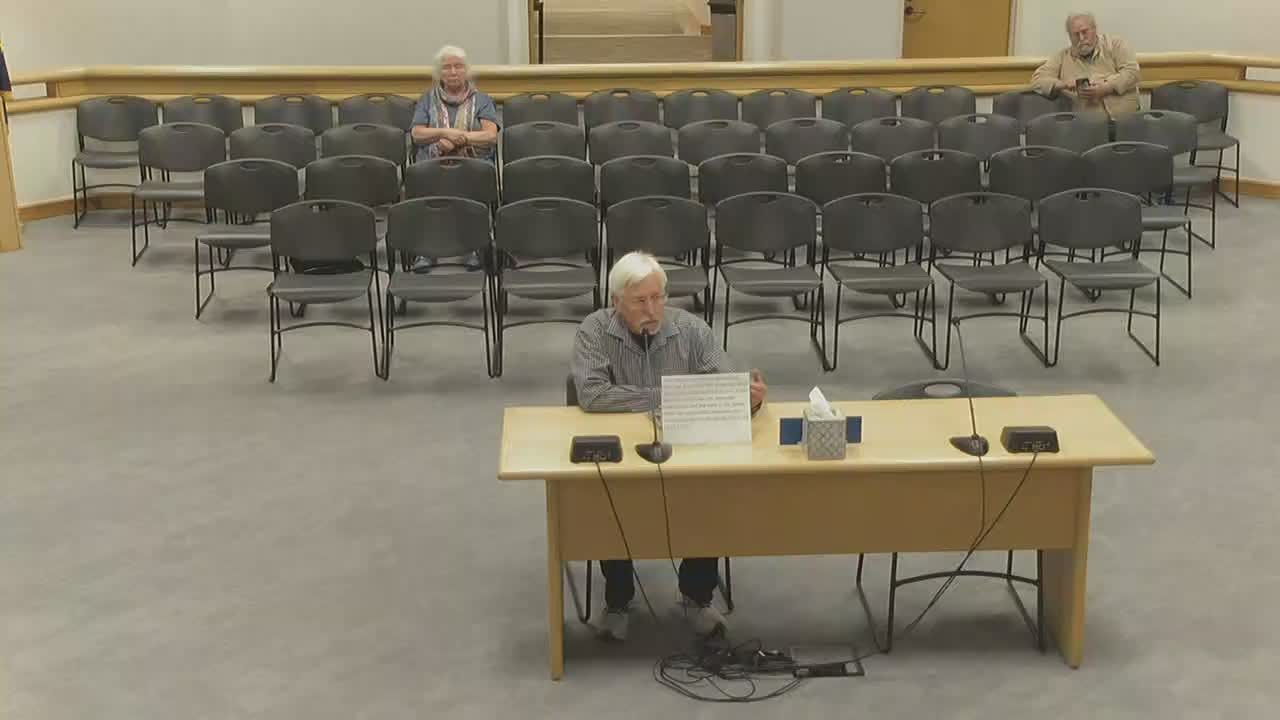Confidential Court Filings Spark Controversy in Development Appeal
September 05, 2024 | Fairbanks North Star (Borough), Alaska
This article was created by AI summarizing key points discussed. AI makes mistakes, so for full details and context, please refer to the video of the full meeting. Please report any errors so we can fix them. Report an error »

In a recent government meeting, significant discussions centered around the appeal of a planning board decision regarding a development project, with a focus on the submission of confidential court documents by a party involved in the case. The meeting highlighted concerns over the appropriateness of including these documents in the appeal process, particularly as they were submitted after the planning board had already made its decision.
Mr. Newman, representing the LLC involved in the development, argued that the planning board's decision was sound and compliant with Title 17 regulations, asserting that the additional court filings presented by Heather, a party opposing the development, were irrelevant and potentially damaging. He claimed that Heather was using her ward and mother as proxies to derail the project for personal reasons, despite evidence that her mother did not object to the development.
Newman emphasized that the court documents, which were confidential, should not influence the appeal, as they did not pertain to the planning board's original decision. He requested that all court filings be removed from consideration, advocating for a fair assessment based solely on the relevant record.
The Director of Community Planning, Kelyn Spellman, stated that the department had no position on the inclusion or exclusion of the contested materials, noting that they were not part of the original recommendation or decision-making process.
The meeting concluded with a motion to grant the request to modify the record, allowing for further discussion among board members. The outcome of this appeal could have implications for the development project and the handling of confidential information in future proceedings.
Mr. Newman, representing the LLC involved in the development, argued that the planning board's decision was sound and compliant with Title 17 regulations, asserting that the additional court filings presented by Heather, a party opposing the development, were irrelevant and potentially damaging. He claimed that Heather was using her ward and mother as proxies to derail the project for personal reasons, despite evidence that her mother did not object to the development.
Newman emphasized that the court documents, which were confidential, should not influence the appeal, as they did not pertain to the planning board's original decision. He requested that all court filings be removed from consideration, advocating for a fair assessment based solely on the relevant record.
The Director of Community Planning, Kelyn Spellman, stated that the department had no position on the inclusion or exclusion of the contested materials, noting that they were not part of the original recommendation or decision-making process.
The meeting concluded with a motion to grant the request to modify the record, allowing for further discussion among board members. The outcome of this appeal could have implications for the development project and the handling of confidential information in future proceedings.
View full meeting
This article is based on a recent meeting—watch the full video and explore the complete transcript for deeper insights into the discussion.
View full meeting
